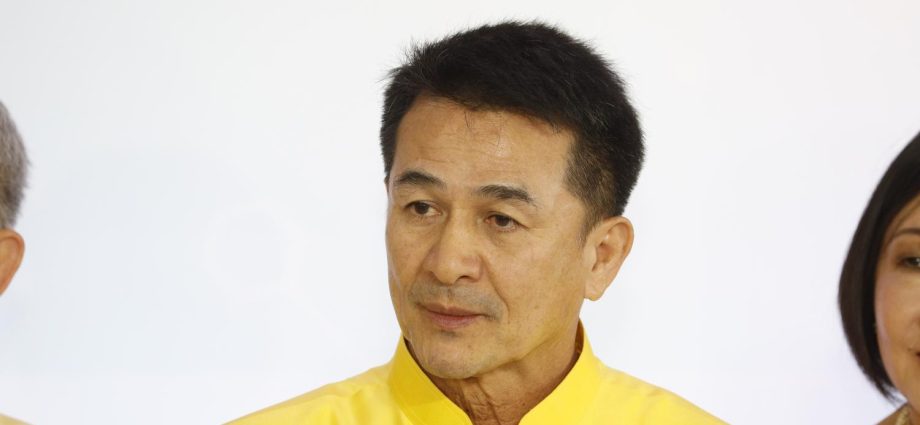Fears public against recriminalisation
PUBLISHED : 3 Apr 2024 at 05:30

Public Health Minister Cholnan Srikaew expressed concern that most people do not agree with the Pheu Thai Party’s plan to recriminalise cannabis following a recent media interview by Prime Minister Srettha Thavisin on the subject.
Dr Cholnan made his remark in response to the interview Mr Srettha gave to France 24, a French state-owned news outlet, in which he disclosed the government’s policy to rein in the use of cannabis, which was decriminalised in 2022.
During the interview, the premier commented that the legalisation of the plant has had negative impacts on the Thai economy, which many took as an indication he supports the plant being re-listed as a narcotic.
“That was the view of the premier as the government has clearly stated in parliament that cannabis will only be used for medical purposes, with implications for the economy,” said Dr Cholnan.
As of now, only products containing over 0.2% THC [tetrahydrocannabinol — cannabis’ main psychoactive agent] by weight will be considered illegal.
To re-list cannabis as an illicit plant, the public health ministerial announcement needs to be revised, and it would involve “clearing the deck”, which would create far-reaching ripple effects since relevant ministerial regulations have been implemented.
Dr Cholnan said non-medical use of the plant’s flower buds and cannabis extract, holding a high degree of THC, is against the law. Growing cannabis needs permission from authorities.
Consuming the buds for recreational purposes breaks the law, the minister said, noting that cannabis shops providing cannabis smoking for pleasure are at risk of operating an illegal business under the cannabis regulations, although they are protected by the Thai traditional medicine law.
The ministry has already finished the draft law concerning cannabis control, which is pending consideration by the Council of State, the government’s legal arm, before being submitted to the parliament.
“However, the decisions regarding cannabis rest with the premier,” he said.
Meanwhile, Deputy Prime Minister Somsak Thepsutin urged the government to speed up issuing the cannabis control law since the law governing kratom plants is already being enforced.
He attended a meeting on April 1 with related agencies on kratom and other medicinal herbs, which together generate up to four billion baht a year of revenue on average for the economy.
But if the law on cannabis control is passed, the economic gains are estimated to surge to tens of billions of baht, he said.
While the cannabis law, which is expected to be put to parliament for scrutiny after being accepted in its first reading in the near future, has not taken effect, the plant’s use for medical purposes is made possible by public health regulations as well as the medicinal herb law, which does not adequately cover all cannabis use cases, Mr Somsak said.

